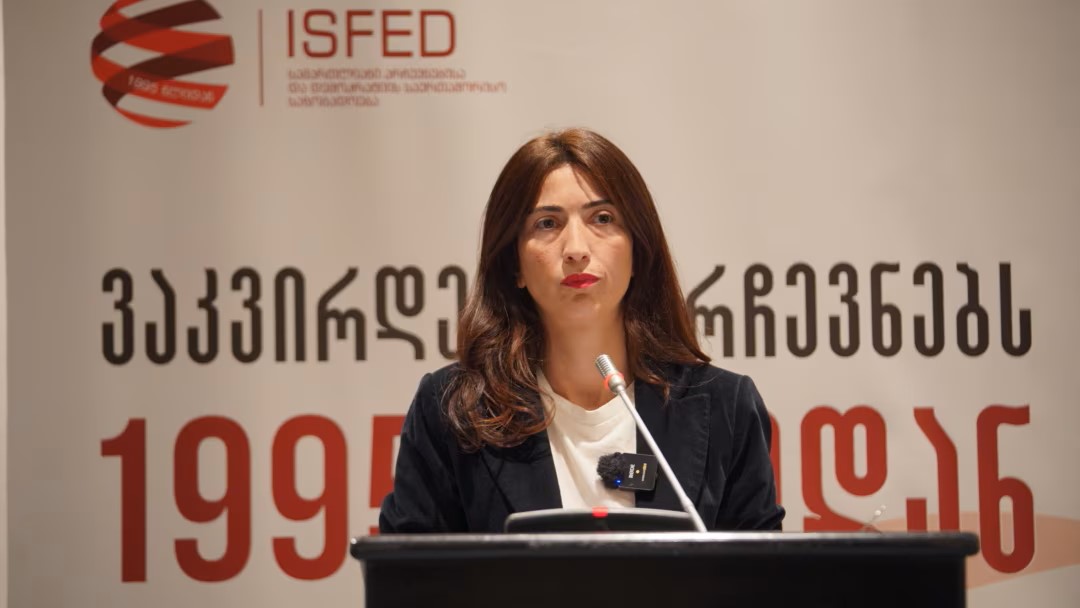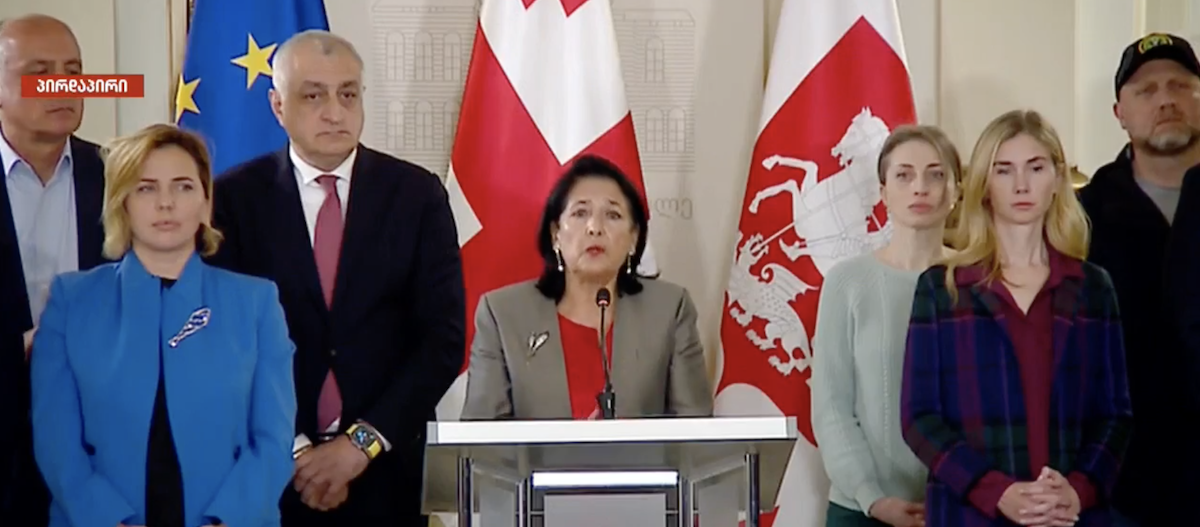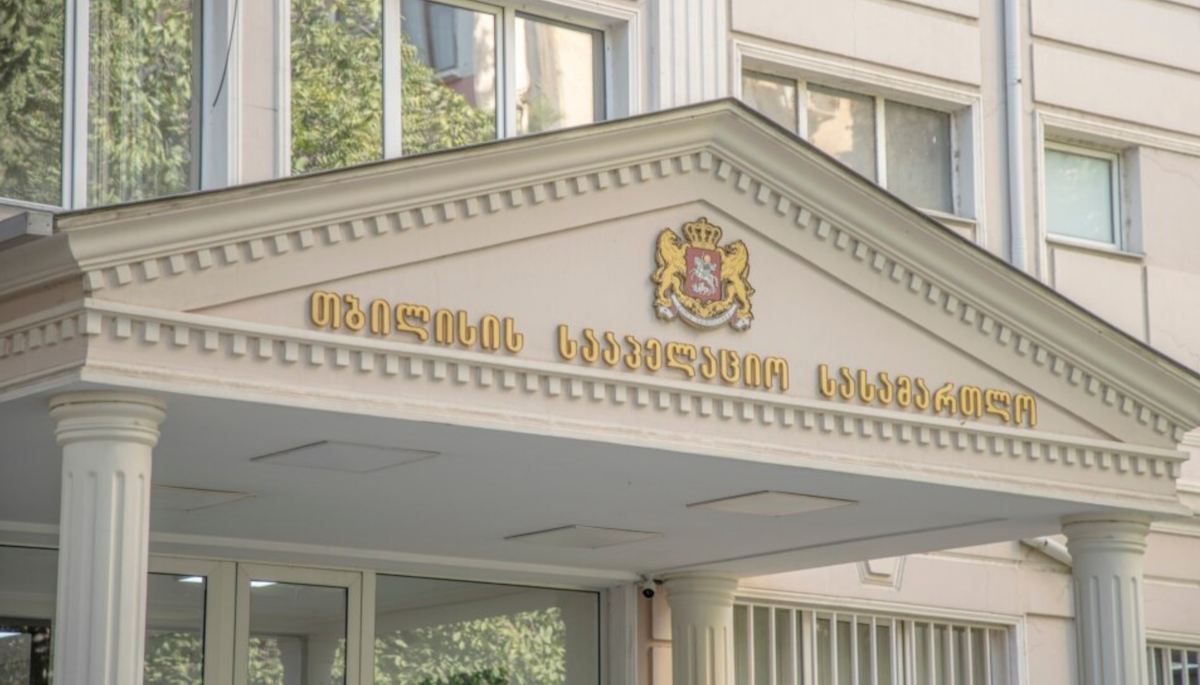
ISFED on violations in Georgian election
Ballot stuffing, violations of registration procedures, carousel voting, breaches of voting confidentiality, voter intimidation, and confiscation of identification are but a fraction of the hundreds of violations documented by the nonprofit monitoring organization ISFED during the parliamentary elections in Georgia on October 26, 2024.
In a report published by the organization, it was stated that the results of the parliamentary elections may not reflect the will of Georgian voters.
The election assessment document outlines the types of violations that occurred during the pre-election period and on election day.
This article highlights the key trends.
The parliamentary elections held on October 26 are of unprecedented significance for Georgia, as their outcome will determine the country’s future political and geopolitical direction.
According to the Central Election Commission of Georgia, the ruling party, Georgian Dream, won the elections with 53.92 percent of the vote.
These figures sharply contrast with exit polls, which had projected that Georgian Dream would receive only 40-42 percent of the vote.
The President of Georgia declared the elections illegitimate, labeling them a sham and a “Russian special operation.” The opposition also rejected the election results, with some representatives refusing to take their parliamentary mandates.
Pre-election Violations
Pressure on voters, intimidation, confiscation of identification, bribery as well as collection and processing of personal data are among the violations documented by the monitoring organization “Fair Elections” during the pre-election period.
According to ISFED, during the pre-election period, the ruling party enjoyed a significant advantage by utilizing vast state resources.
The use of these resources took several forms:
- Numerous state social and infrastructure programs were employed by the ruling party to attract voter support.
- Government officials actively participated in the ruling party’s campaign events.
- There were reports of data collection on voters and alleged confiscation of citizens’ identification. ISFED assessed this as an attempt to pressure voters and obstruct their expression of will.
ISFED also noted that the parliamentary elections were preceded by numerous problematic changes to electoral legislation, including a deterioration in the process of forming the Central Election Commission, where the required quorum for decision-making was reduced from a qualified majority to a simple majority.
Additionally, issues arose for voters living abroad.
Election Day Violations
On election day, ISFED also identified hundreds of serious violations, including ballot stuffing, repeat voting, unprecedented large-scale bribery of voters, the expulsion of observers from polling stations, as well as instances of mobilizing voters outside polling places, collecting their personal data, and monitoring what they wanted to do.
On election day, “Fair Elections” monitored the situation across the country. The organization’s observation mission included monitors at nearly 1,000 polling stations, 235 external perimeters, 45 overseas polling places, as well as 73 monitors from district election commissions and 85 mobile groups.
In the organization’s central office on election day, data accounting/verification/analysis centers (with 32 operators) and incident/complaint centers (with 23 lawyers) were operational.
On election day:
- 9% of polling stations failed to ensure voting confidentiality;
- 9% experienced issues with verification and registration;
- Instances of voter registration outside polling places were reported by party coordinators at 31% of polling stations;
- 11% of polling stations recorded incidents of verbal and physical confrontations, as well as threats;
- Organized transportation of voters was identified at 19% of polling stations;
- Allegations of voter bribery were noted around the external perimeter of 13% of polling stations;
- There were also instances of illegal restrictions on observers’ rights, intimidation, verbal or physical violence, and expulsion from polling stations.
- At several polling places, incidents of mass ballot stuffing and repeat voting were documented.
Observers from the organization Fair Elections documented up to 170 incidents of violations within polling stations.
These included:
- 2 cases of ballot stuffing;
- 4 instances of multiple voting;
- 16 violations of marking procedures;
- 25 breaches of voting confidentiality;
- 11 restrictions on observers’ rights and expulsions from polling places;
- 16 instances of submitting more than one ballot;
- 14 cases related to portable ballot boxes;
- 8 incidents involving electronic devices;
- 5 issues related to polling station organization;
- 4 instances of voting with improper documentation.
Fair Elections submitted a total of more than 200 complaints, with over 100 directed to district election commissions and 95 to regional election commissions. Approximately 70 notes were recorded in the logbook.
Additionally, one complaint was filed with the Central Election Commission regarding a polling station in Thessaloniki.
Trends Identified Outside Polling Stations
Outside polling stations, Fair Elections documented over 100 incidents.
Reported violations included:
- Voter registration issues
- Alleged bribery of voters
- Suspected control over voter agency
- Organized voter mobilization
- Physical and verbal confrontations
- Physical violence against observers
- Placement of campaign materials within 25 meters of the polling station entrance.
Detailed accounts of all cases can be found in the organization’s statement linked here.
ISFED on violations in Georgian election




